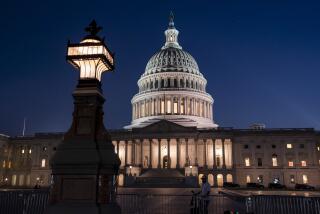Blister for Cinderella
Sailing along with a momentum all its own, the Senate’s tax-overhaul proposal has passed on a 97-3 vote. Fearful of breaking the magic spell, the Senate rejected all but a handful of amendments to the bill fashioned by Sen. Bob Packwood (R-Ore.) and his Senate Finance Committee.
Senators properly should celebrate. The prospect of getting a tax bill through the Senate was virtually zero just a couple of months ago. But President Reagan may have been overly euphoric when he said that the score is Taxpayers 1, Special Interests 0, and, “The Cinderella team has come out on top.” There are, in fact, some provisions in the Senate bill that could give Cinderella a blister.
The Senate vote almost certainly assures the passage of tax reform this year. But the final form of such a bill will not be known until the Senate and the House of Representatives reconcile their differing versions of the legislation late this summer, and perhaps into the fall.
The most notable issue that they must address is the question of fairness to the middle class. Many Americans have the false impression that the Senate bill, with just two tax brackets of 15% and 27%, would provide a tax cut for everyone except those who rely heavily on tax shelters and loopholes that are to be eliminated. This is not so--a fact known to at least 29 senators who voted unsuccessfully last week to add a third bracket of 35% in order to spread the equity. The House version has four brackets, ranging from 15% to 38%.
Just how the tax bills treat various income classes is uncertain. Making such an analysis is difficult because of the complexity of the measures and the variations in individual deductions that are either retained or lost. But a study conducted for U.S. News & World Report estimated this week that nearly a third of the 60 million taxpayers with incomes between $20,000 and $100,000 would pay higher taxes under the Senate bill. In general, working couples of all income brackets would suffer the most.
Two brackets, as in the Senate bill, may sound simpler than three or four. But that has nothing to do with equity or, for that matter, with the difficulty of making out a tax return. The important point is that one class of taxpayers should not be penalized relative to others. In particular, a broad range of middle-income Americans should not be required to swallow higher taxes while the wealthy, in general, enjoy tax cuts on top of the hefty ones that they received in 1981.
The certain winners can sip their champagne in celebration today, but millions of Americans need to keep their eyes on the coach to make sure that it does not turn into a pumpkin.
More to Read
Get the L.A. Times Politics newsletter
Deeply reported insights into legislation, politics and policy from Sacramento, Washington and beyond. In your inbox three times per week.
You may occasionally receive promotional content from the Los Angeles Times.









